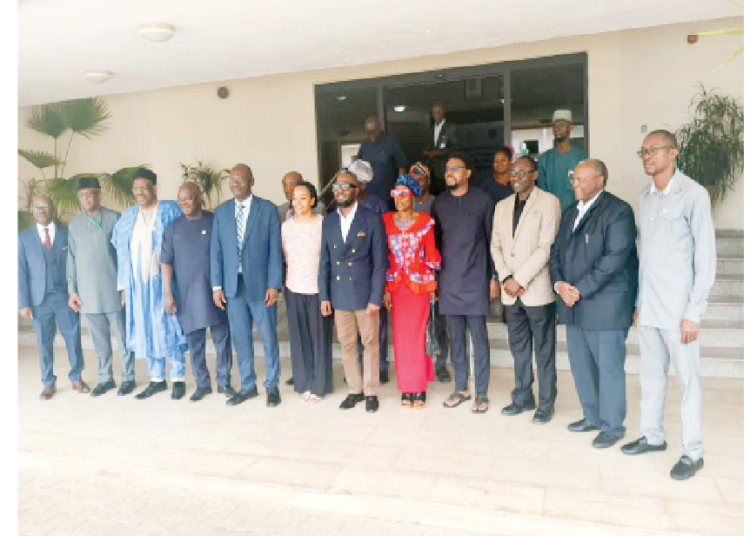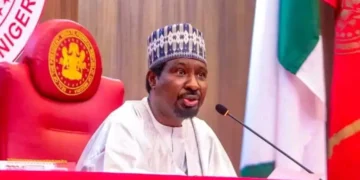The global community is undergoing a significant change. The world is replete with rising geopolitical tensions, the erosion of multilateral cooperation, and the decline in international aid are reshaping the rules of global engagement.
Against this backdrop, Africa faces a situation that could be an opportunity as well as a threat to its existence, especially with the torrent of tariffs imposed by the US President Donald Trump that is causing reverberations around the world.
It is therefore incumbent on African leaders to explore the difficult but necessary decisions to make the continent a proactive, strategic actor in the new world order in the face of shifting alliances that may shape the circumstances of the modern time.
It is against this backdrop that African experts gathered in Abuja, the Nigerian capital on Wednesday to process ideas and collective vision on how to address the crisis of the emerging global order, especially as countries of the continent are facing varying degrees of tariffs from the US.
The Roundtable on “African Perspectives On the Emerging global order” was a result of a tripartite project undertaken by Nigeria’s Institute For Peace and Conflict Resolution( IPCR), Institute for Justice and Reconciliation (IJR) in Capetown, South Africa and International Peace Institute New York, United States.
In his opening remarks, Director General of the IPCR, Dr. Joseph Ochogwu, said that the roundtable was to present collective continental response by “giving Africa a voice to the emerging global order and drive the continent from passivity to activeness .”
“We are trying to amplify the voice of Africa to ensure we have active and assertive voice in the emerging global order and we will do this through partnership, collaboration and engagement with our strategic partners across the world, “ he added.
Nigeria’s 4Ds Foreign Policy Agenda has positioned the country to play a significant role in changing the narrative for the continent even as the IPCR boss believes the roundtable will help African institutions interrogate how they can strengthen governance systems, address security challenges, and foster long-term political stability.
Senior Special Assistant to President Bola Tinubu on International Cooperation, Dapo Oyewole, said Nigeria should be driving the emerging global order, adding that the vision of President Bola Tinubu is to “proactively shape what happens in Africa and the rest of the world because Nigeria is bringing a lot to the table.”
He noted that Nigeria is the largest black democracy in the world, and with the strength of the country and the vision of President Bola Tinubu who is the chairman of ECOWAS, Nigeria will play a very significant role in African Union which should count in terms of numbers.
He added that at a time of global uncertainty, reconfiguration and shifting global alliances, Africa should no longer be a bystander or a proxy of other contending forces.
“The time has come for Africa to speak with a coherent and confident voice grounded in our realities, our values and our aspiration for the future. Africa must negotiate from the position of strength through strategic planning and engagement,” he said.
He added that the current developments around the world provide Africa with a renewed opportunity to rethink and recalibrate its position backed by political will and regional solidarity.
Prof. Tim Murithi, head of IJR, Peace building interventions programme and Extraordinary Professor of African Studies , University of Free State, South Africa, said that African think tanks are working together to engender strategic ideas and work more cohesively to put certain ideas on the table as the world realities unfold.
“We have a crisis of global multilaterism, our institutions are failing, we know that the UN Security Council has in effect collapsed and as Africans we need to harness our collective ability through institutions like the AU, ECOWAS ans be more strategic,” he said
He stessed that the collaboration with the Nigerian government was apt as it will guarantee Africa’s place in shaping the global order, even as he called for more intra -African knowledge generation and expertise to strengthen the continent’s position.
Bitania Tadesse, policy Specialist for Africa at the International Peace institute New York, said the roundtable is a broad-based approach to address the emerging crisis and co -create a new global order where Africa can be an active player. She added that it will deepen discussion for African stakeholders to reconceptualise the African positions on global affairs.
For Africa, a continent rich in natural resources and a growing young population, these shifts present both significant risks and unprecedented opportunities. African countries irrespective of their differences must come together and engage the global community and ensure that this time Africa’s interests are very much at the centre of reshaping the emerging global order.
African leaders must confront hard questions of what role will Africa play in the emerging global order, and how can it reposition it to safeguard and advance its interests?





